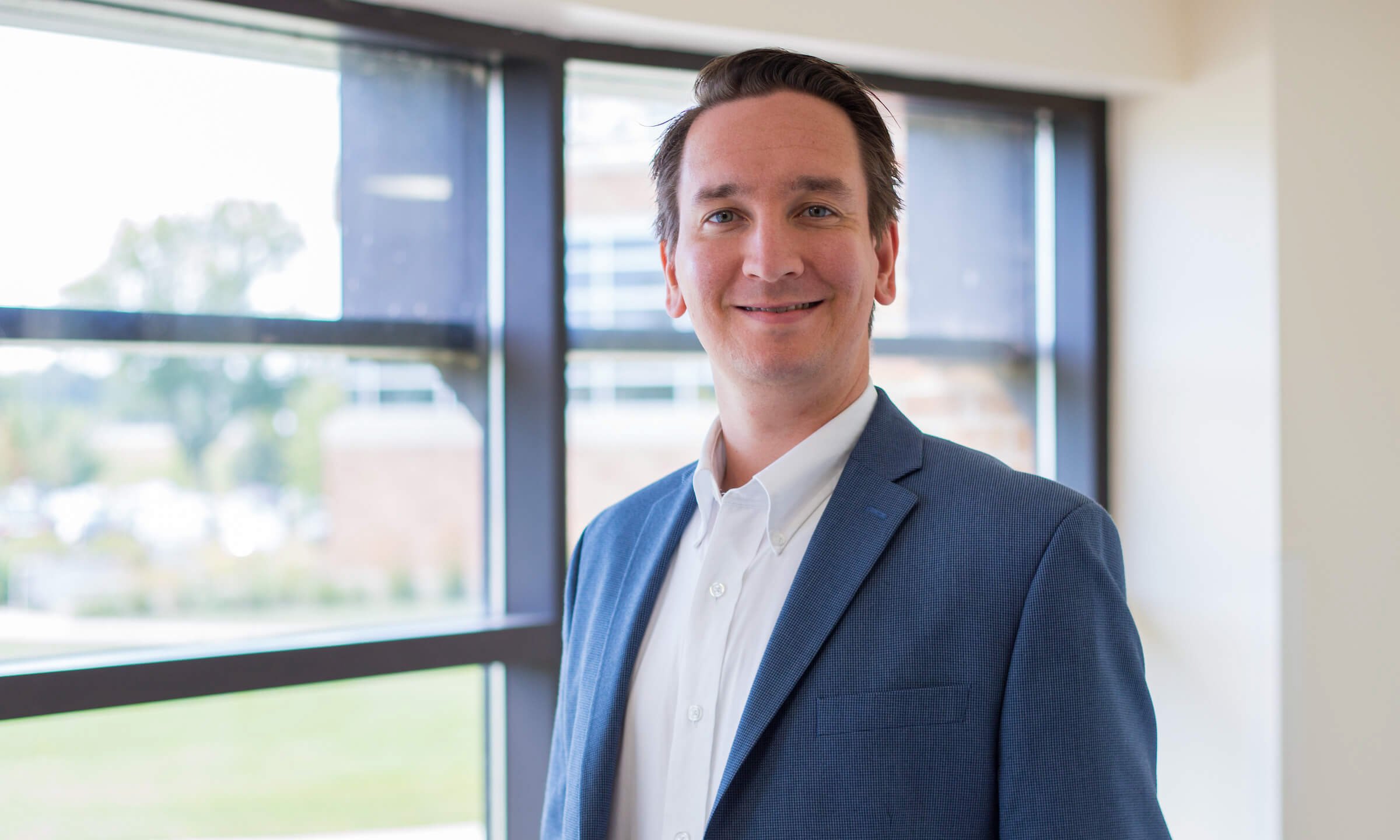
Tim Macafee, PhD, is the new chair for the Department of Communication at CUWAA.
Not one to step into the spotlight, Tim Macafee, PhD, didn’t dream of becoming an academic leader. He was happy teaching communication courses at Concordia University Wisconsin and Ann Arbor. But in spring 2022 he was shoulder tapped to become the Chair of the Department of Communication. After serious consideration, he accepted. Macafee felt an innate stirring to serve his team in a new way, a team that includes five full-time and a dozen part-time faculty members. This is his first leadership role at CUWAA.
The journey
Macafee is a native of Milwaukee. He was a biology major at UW-Milwaukee but switched to Journalism after he took a “TV and Society” general elective course. He became fascinated with how television could influence people’s worldviews. During his senior year, a professor suggested Macafee enroll in a master’s program.
“His faith in me was inspiring,” Macafee said of his professor.
Macafee continued with his master’s degree at UW-Milwaukee and then pursued a doctoral degree in Mass Communication from UW-Madison. He worked as a journalist for a year and in university communications for another year, bolstering his professional credentials.
Since 2014, Macafee has taught numerous communication and university core courses. Among his favorites is Media Writing, because the small class size is conducive to thoughtful discussion about media’s impact on society. The students work on individualized projects where they must demonstrate mastery of writing for various platforms.
“Traditional-aged college students have grown up with digital technology and whether they realize it or not, influences them in multiple ways. I want to encourage students to think critically about how their digital media use impacts their relationships with family, friends, professionals and government,” Macafee said.
He also likes teaching Interpersonal Communication because students of all majors take the course and bring diverse perspectives to class discussion.
“I think the pandemic outcomes have reestablished the importance of interpersonal connection in higher education. Technology certainly also will remain an important part of what we do, but to suggest everything can be online without potential negative consequence is inaccurate,” he said.
Macafee holds the rank of Associate Professor of Communication, in addition to the Chair position. His research focuses on how using digital media relates to civic engagement.
A “refreshing” set of goals
Macafee started as Chair July 1. In his words, his key goals seek to refresh the department:
- Update existing curriculum and add new courses to the Mass Communication major and minor
- Build out the alumni network by connecting with graduates to discuss their experiences in the program for continuous learning
- Increase awareness of the majors and minors housed within the program, both internally and externally
He knows he has his work cut out for him, considering the challenges in higher education. There is potential negative public perception of the role and impact of higher education, along with rapid advances in teaching modalities. Macafee is working to position the team to adapt to the technology-driven changes and become more information literate.
Macafee also emphasizes the human element in his leadership style. “This leadership role requires more frequent intimate connections with faculty, students and staff. I will need to make sure I approach each situation with flexibility and understanding.”
The after-hours life
In his non-working hours, he enjoys reading, running, and studying politics. He is also an active father of two young children.
Want in?
Concordia offers bachelor’s programs in Mass Communication and Technical & Professional Communication. Minors include Mass Communication, Christian Service Learning & Leadership, and Sports Media.
—This article is written by Sarah Holtan, PhD, special advisor to the president and professor of communication. Holtan teaches communication-related courses in the undergraduate and graduate programs, both face-to-face and online. Prior to teaching, she worked in media as a television news producer.